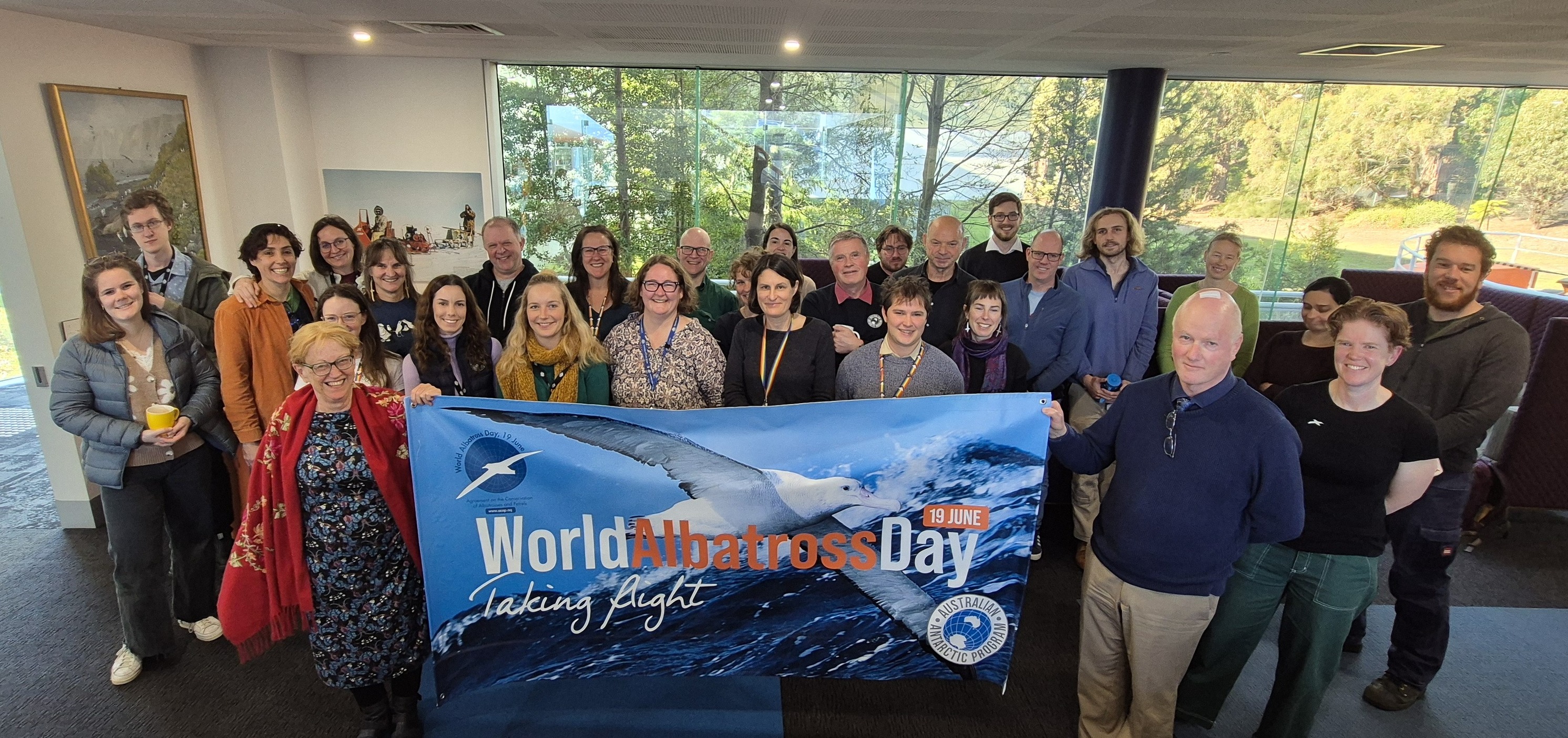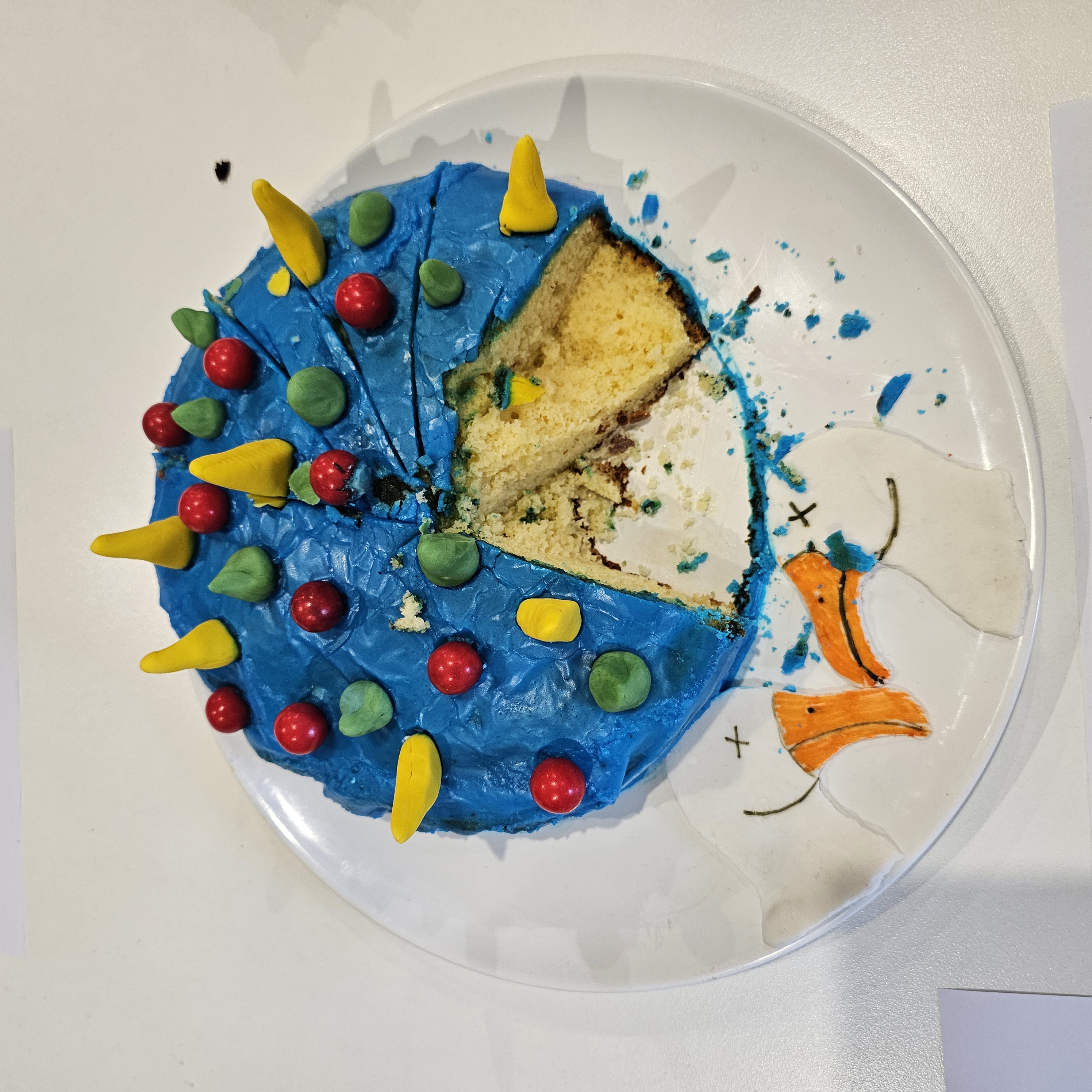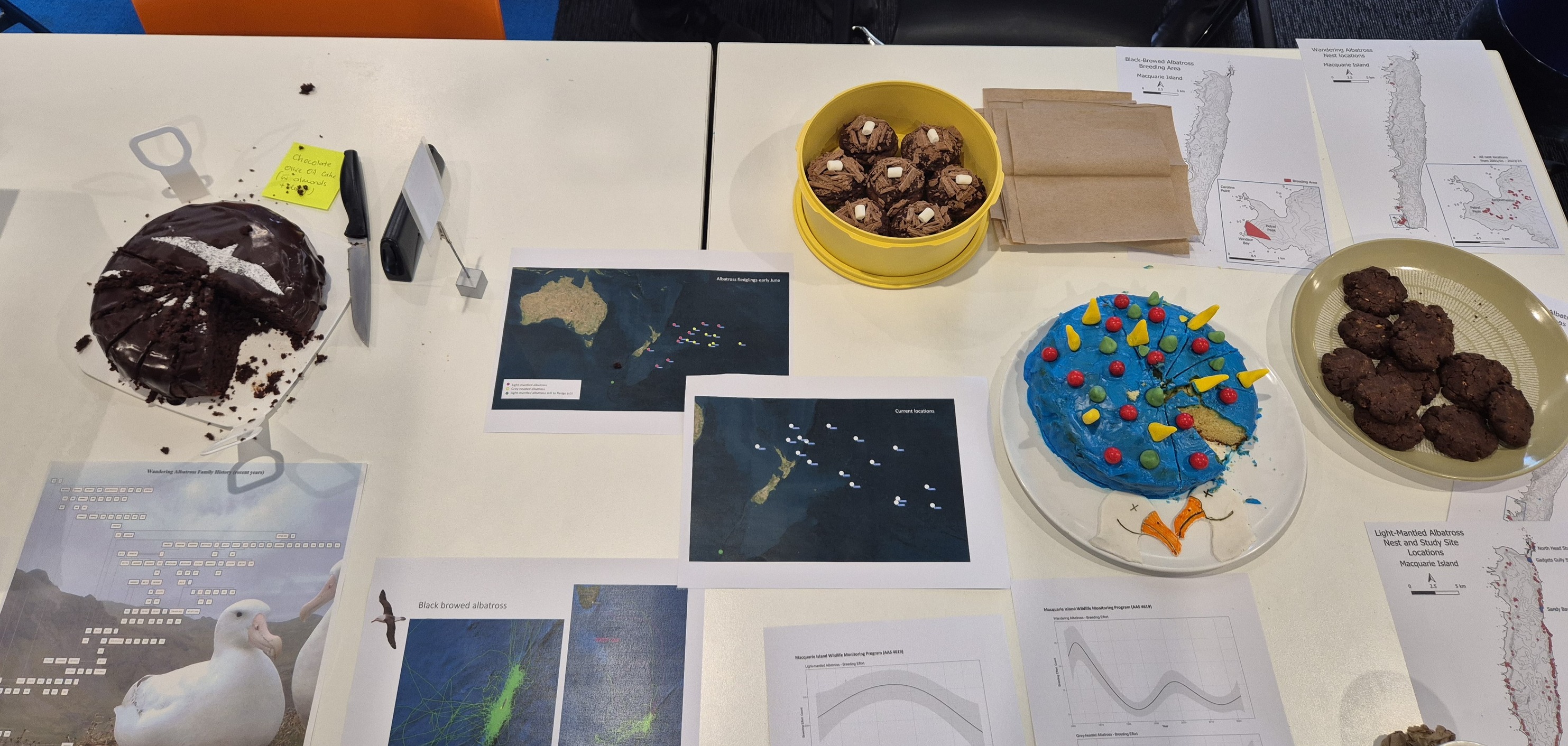
Staffers and guests at this year’s World Albatross Day morning tea at the Australian Antarctic Division on 19 June. Dr Christine Bogle, ACAP’s outgoing Executive Secretary, holds the World Albatross Day banner on the left, incoming ACAP Executive Secretary, Jonathon Barrington, holds the other end on the right. ACAP Advisory Committee Chair, Dr Mike Double, is at the back, sixth from the left. Photograph by Wendy Pyper
In what has become a tradition, the Australian Antarctic Division once more hosted its annual morning tea to celebrate World Albatross Day (WAD2025) on 19 June, marking this year’s theme of “Effects of Disease”.
Dr Julie McInnes, Australian Antarctic Division (Commonwealth) and Dr Sam Thalman, Department of Natural Resources and Environment (Tasmania) each gave a short presentation about Australia's conservation efforts concerning the 18 ACAP-listed albatross species that breed and/or forage within Australia's jurisdiction.
They highlighted the ongoing efforts of scientists to obtain data on the status of Australia's breeding populations of albatrosses. This work is highly challenging as each breeding population is located on islands that are logistically difficult to access. Some populations are on islands near Tasmania, while others are found on Australia's remote sub-Antarctic islands. While highly important long-term studies have been undertaken for several populations, other locations are only visited rarely. And so, scientists are very excited about the prospect of returning to Heard Island and McDonald Islands (HIMI) in the coming Austral Summer 2025/26, which were last visited in 2004.
 One of the theme-based cake offerings at the morning tea, depicting the Highly Pathogenic Avian Influenza virus - and quite a tasty treat! Photograph by Jonathon Barrington
One of the theme-based cake offerings at the morning tea, depicting the Highly Pathogenic Avian Influenza virus - and quite a tasty treat! Photograph by Jonathon Barrington
The speakers stressed that the threats to albatrosses globally are shifting and changing. Recognising this year's theme for World Albatross Day, the talks highlighted the existing effects of disease on Australia's albatrosses, particularly on the globally Near Threatened Shy Albatross Thalassarche cauta breeding population on Albatross Island, and efforts led by Tasmanian scientists to improve the resilience of this population to disease. As well, the spread of Highly Pathogenic Avian Influenza (HPAI) to the sub-Antarctic and Antarctica was identified as a looming threat to Australia's threatened albatross species, as well as to its seabirds generally. Of concern was the recent spread of HPAI to the Kerguelen Islands, a French sub-Antarctic territory, which are less than 500 km away from HIMI. Accordingly, the Australian Antarctic Division is putting in place biosecurity and health and safety protocols that will allow population monitoring to go ahead during the upcoming visit to HIMI, even if HPAI is found to have spread to this location.
 Albatross-themed confectionary on display at the Australian Antarctic Division’s World Albatross Day tea yesterday, photograph by Wendy Pyper
Albatross-themed confectionary on display at the Australian Antarctic Division’s World Albatross Day tea yesterday, photograph by Wendy Pyper
Dr Chistine Bogle, ACAP’s outgoing Executive Secretary attended the morning tea. This was Christine's last World Albatross Day event in her official capacity, and she was lauded for her leadership in albatross and petrel conservation on behalf of the 13 ACAP Parties over the past six years. Christine will be handing over her responsibilities to Jonathon Barrington, the incoming ACAP Executive Secretary, on 1 July 2025.
Jonathon Barrington, Incoming Executive Secretary, Agreement on the Conservation of Albatrosses and Petrels, 20 June 2025

 English
English  Français
Français  Español
Español